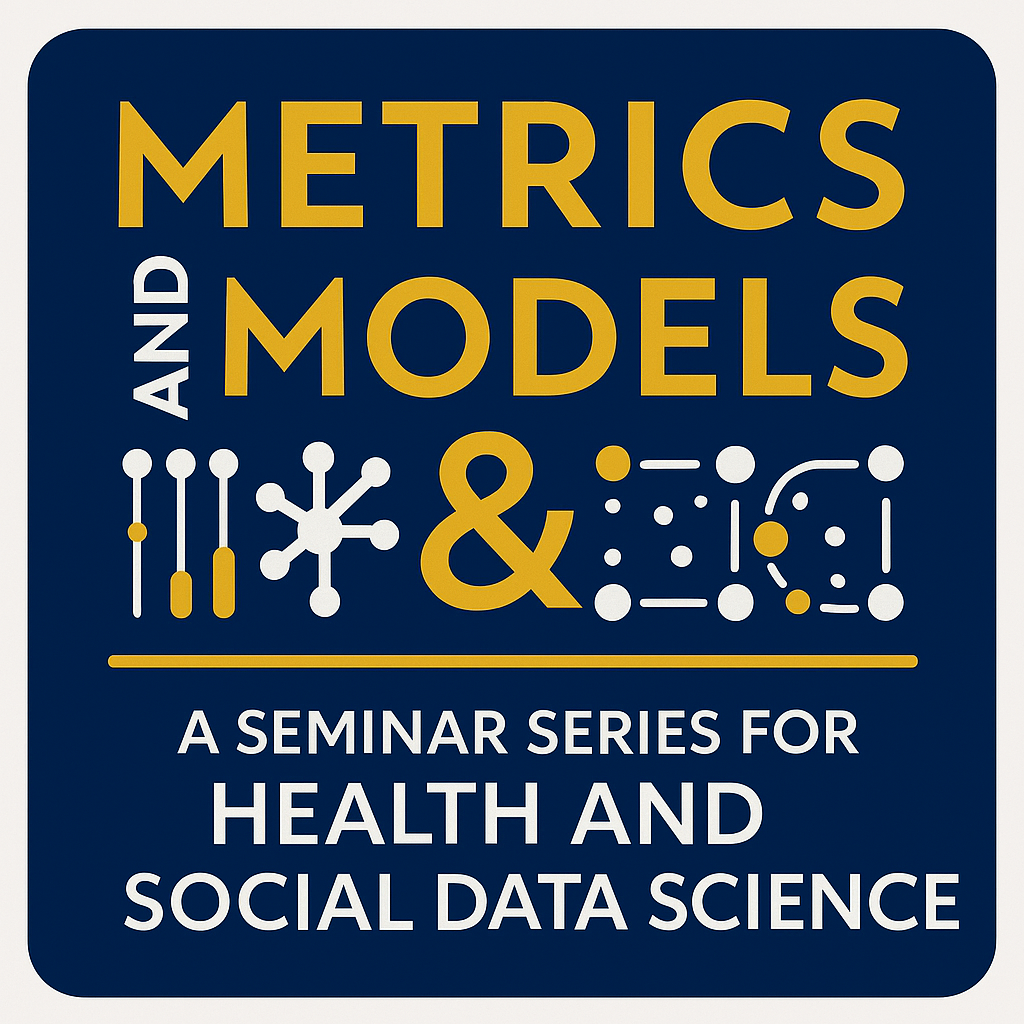Welcome to the Metrics and Models homepage!
Speaker: Andrea Ganna
Institution: Institute for Molecular Medicine Finland (FIMM); Harvard Medical School
Date: 14:00 BST, 22nd October 2025
Talk Title: Disease prediction using nationwide health data and genetics
Abstract: Utilising data from Finland, where genetic details of approximately 500,000 individuals are linked to a national health registry, this presentation will explore the use of polygenic scores and electronic health records (EHRs) to predict disease susceptibility. It will highlight the challenges and successes of employing polygenic scores for disease prediction. Additionally, the talk will discuss the application of machine learning algorithms to predict healthcare outcomes from EHRs, assessing their fairness and generalizability across different populations. The presentation will conclude with a direct comparison of genetic and EHR-based predictions to assess which approach is most predictive and generalizable across healthcare systems.
Bio: Andrea is an Associate Professor at the Institute for Molecular Medicine Finland (FIMM), HiLIFE and a research associate at Massachusetts General Hospital, Harvard Medical School. Andrea’s research interests lie at the intersection between epidemiology, genetics, and statistics. He leads a diverse group of 18 researchers including biologists, mathematicians, and medical doctors. He is a winner of an ERC starting grant and the Leena Peltonen Prize for Excellence in Human Genetics. He is co-leading two major international consortia: the COVID-19 host genetic initiative, the largest human genetic study of COVID-19, and the INTERVENE consortium, which aims to integrate AI and human genetics tools for disease prevention and diagnosis across biobanks in Europe. He has also initiated the FinRegistry project, one of the most comprehensive registry-based health studies in the world. His research vision is to integrate genetic data and electronic health records to enhance the early detection of common diseases and improve public health interventions.
